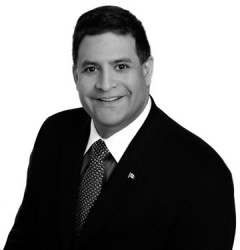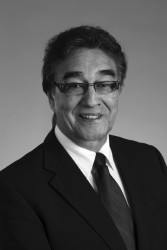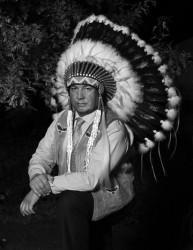Article Origin
Volume
Issue
Year
Former Chief of the Federation of Saskatchewan Indian Nations (FSIN), Lawrence Joseph, is unfazed by criticisms thrown in his direction by MP Rob Clarke, in regards to the highly debated issue of the First Nations University of Canada (FNUC). Both men are not afraid to get dirty as they compete to represent Desenthe-Missinippi-Churchill River in the next federal election.
“If he’s going to throw mud, let him throw it,” said Joseph, who referred to an editorial written by Clarke for The StarPhoenix on April 22.
“We recognize that FSIN Chief Guy Lonechild, who inherited a terrible mess from Lawrence Joseph, has taken steps to address the many critical issues facing FNUC,” Clarke wrote. “However, our government will continue to act in the best interests of the students, taxpayers and accountability,” commented Conservative-party member Clarke in the editorial.
Joseph, who is running under NDP, was not impressed that Clarke assigned the blame behind the tumultuous year of FNUC to himself. He attributed Clarke’s remarks to his loyalty to Canada’s current Conservative government.
“Mr. Clarke just seems to be the‘Yes Man’ for the government of Canada, agreeing on everything they do, without voicing the opinions and concerns of his constituents,” said Joseph.
After repeated attempts by Sage to solicit comment from Rob Clarke, calls to his office were not returned.
On February 3, the Saskatchewan government announced their $5.2 million funding contribution to FNUC would not continue past the current school year.
Shortly after, Indian and Northern Affairs of Canada (INAC) followed suit by ceasing almost $7 million worth of funds to the institution. The decision was made following allegations of financial turmoil and mysterious staffing concerns at the university.
Current FSIN Chief Guy Lonechild, who entered into his position following Joseph’s loss in the 2009 re-election, confirmed in an interview that he did not correlate the downfall of FNUC to Joseph’s management of the FSIN from 2006 to 2009.
“This isn’t the result of any one person. The previous management of the First Nations University had significant shortfalls in reporting the true financial picture of the First Nations University,” said Lonechild. “Its ongoing systemic issues (stem) from at least 2005, if not before that.”
During the April 30 interview, Lonechild added that he was a few hours away from speaking with INAC Minister Chuck Strahl to sort through details that made him optimistic about the future of Canada’s only First Nations University. Lonechild said his discussion with Strahl was scheduled to include the details behind the federal government’s pledge to provide FNUC with $4.2 million for the 2010/2011 academic year.
“It’s the first critical step to getting long-term sustainable funding back to the First Nations University,” said an optimistic Lonechild.
Despite necessary cuts of board members and staff at the FNUC, which has helped the government slowly build trust with the university, Joseph does not share the same optimism as Lonechild when it comes to the status of the post-secondary school.
“What they are basically doing is punishing everybody because of a few people, [it] is not the way to go,” said Joseph, who is still rattled from the government’s decisions surrounding FNUC.
Along with the reinstatement of provincial funding, the Saskatchewan government implemented a stipulation that would see the affiliated University of Regina handle the money of FNUC.
Joseph is not comfortable with the government making decisions on First Nations’ affairs.
“Historically governments have prescribed what is ‘good’ for our First Nations people, one example is the residential school fiasco,” said Joseph, who is determined to prove that the mainstream government does not always have the best interest of First Nations people in mind.
Joseph has also said he looks forward to a time when he and Clarke can engage in a public debate on issues the two candidates disagree upon.
The Desenthe-Missinippi-Churchill River district has a population of almost 68,000 people. The last Federal election took place in October 2008.
- 4539 views



